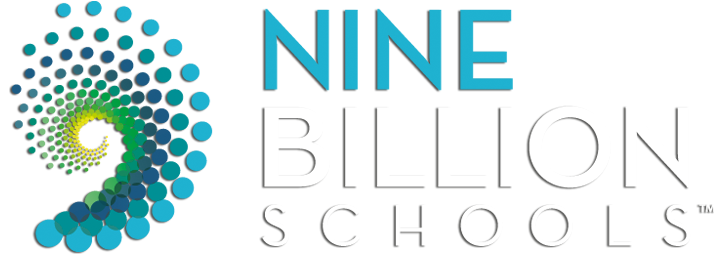What is Vitaegogy and Why is it Important?
“Learning proceeds until death and only then does it stop.”
Unless you’re an educator, you probably don’t think about pedagogy (the teaching of children) during the course of a normal day. Yet the effects of both formal and informal pedagogy likely impact you daily. From basic math and language skills to complex deductive reasoning, the way you were taught to learn, even at a very young age, made an indelible imprint on your life.
If you don’t give the effects of pedagogy a second thought, then you probably really don’t consider andragogy… although, in all likelihood, you experience some form of andragogy every day. A term first coined by German educator Alexander Kapp and later popularized by Malcolm Knowles, andragogy refers to the science of understanding and supporting the lifelong education of adults. It is built on the tenets of comprehending, organizing and applying knowledge rather than rote memorization: in other words, long-term problem-solving.
And yet, we use the cumulative results of our pedagogical and andragogical experiences on a daily basis. According to Sheena Iyengar, a researcher at Columbia University, adults make approximately 70 conscious decisions each day. Every decision we make is informed, somehow, by lessons we’ve learned in the past, questions we’ve asked Siri, recommendations we request from friends and family, peers and colleagues, or things we just know. And that’s just decision-making; we’re also confronted daily with problems we must solve, new skills we must acquire, research we must conduct… the list goes on and on.
This pursuit and acquisition of knowledge is so ubiquitous to daily life that it’s often performed almost on auto-pilot. When we plug a search into Google, we may not consciously consider our query an act of learning. But shouldn’t we?
Enter vitaegogy.
What is vitaegogy?
Vitaegogy is a term my co-author, Dick Thomas, and I coined to explain the underpinnings of the 9 Billion Schools movement. But introducing a new “gogy” into the public lexicon—especially one as nebulous as the concept behind vitaegogy—isn’t an easy task. Allow me to break it down:
Vitaegogy
Noun \ vi·tae·go·gy \ vy-tə-gō-jē
Definition: the art, science, methods and resources for teaching the individuals how to learn across their lifetime; an approach to learning as a whole-person, whole-life endeavor before determining the tools and techniques that allow learning to flourish.
Vitaegogy goes hand-in-hand with life-long, life-wide and life-deep (L3) learning. With L3 learning as its primary operating system, vitaegogy places the individual at the center of their unique learning journey and gives them the tools necessary to intentionally pull knowledge toward them in a way that leads to greater fulfillment.
None of this is to say that pedagogy or andragogy aren’t as important as ever: they are. The fact is clear that children’s brains work differently and they need teachers trained to help them grow in life and knowledge. Equally as evident are the unique challenges and educational needs for adults in a learning environment. But while pedagogy and andragogy are concerned with how educators can teach a specific age group, vitaegogy is concerned with how an individual can best use educators, research, apprenticeships and any number of other learning tools to learn in a way most meaningful for them at any stage of life. It’s a subtle but important distinction where the focus isn’t on how we teach for certain learners, but instead how we teach learners to approach learning itself.
Understanding that, vitaegogy can be seen as an overarching principle that calls upon more specific educational systems to make sure that, in addition to the importance of teaching subjects or skills, we’re teaching learners how to take an ownership of their own education throughout life.
Why is vitaegogy important?
The framework Dick and I lay out in in the 9 Billion Schools book makes a case for vitaegogy. The idea that learning takes place strictly alongside certain age-based milestones simply isn’t compatible with modern society.
For instance, we’re still following a learning schedule in America that allots education into slivers of time that don’t interfere with peak growing season. While the world around us is dominated by the digital and technical, the foundation of learning from Kindergarten to college is the same centuries-old agrarian model. We don’t emphasize learning in the summer—planting season—despite the documentation of summer brain drain. We start the school day early and end early, despite the scientific evidence that this is harmful to health and learning, because of farming traditions as well.
The result: decreased academic performance compared to other countries that have adopted updated learning schedules and enshrined a belief that learning knows no seasons.
Vitaegogy is important because it emphasizes that learning never turns off. There is no neat hand-off and reset from summer to fall, 12th grade to college and from college to “the real world.” Vitaegogy is a system that creates a mental transcript from the cradle to the grave, where every day a new lesson can be learned. It’s one where a Kindergartner can discover symmetry through finger painting, a teenager can learn leadership through sports and a recently retired nurse can launch an encore career in computer engineering.
Vitaegogy is important not because it is an inherently better approach to education, but because it serves as the bridge and pillars connecting and elevating all the very best education has to offer for a modern world. It’s important because it’s about learning, not education.






